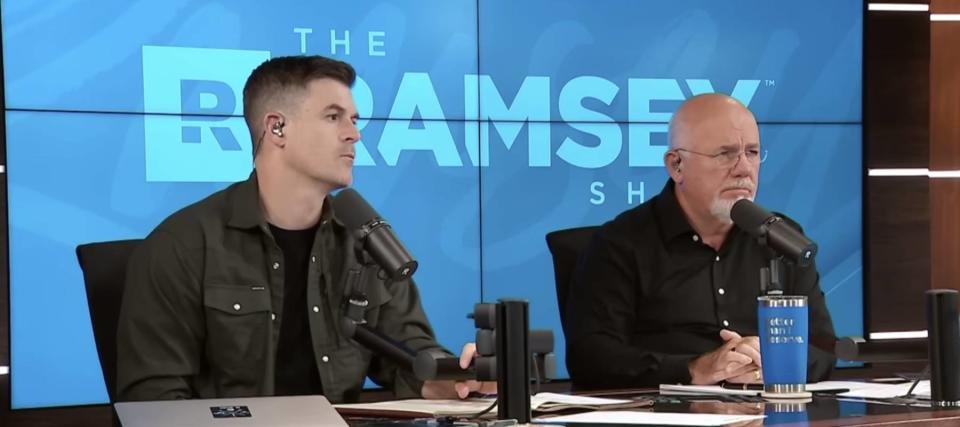
There are currently more than 49.5 million rental housing units in the U.S. — and nearly half of them (46%) are small properties with less than four units and are managed by mom-and-pop landlords, according to the National Association of Realtors.
Twenty-year-old Cesar from Mobile, Alabama, found himself among this cohort when he started renting out two units in his home to cover the mortgage.
Don’t miss
-
Commercial real estate has beaten the stock market for 25 years — but only the super rich could buy in. Here’s how even ordinary investors can become the landlord of Walmart, Whole Foods or Kroger
-
Car insurance premiums in America are through the roof — and only getting worse. But 5 minutes could have you paying as little as $29/month
-
These 5 magic money moves will boost you up America’s net worth ladder in 2024 — and you can complete each step within minutes. Here’s how
The arrangement proved so lucrative that he’s now considering a career in real estate. He wants to buy an investment property with his uncle.
“I saw that being a landlord is really not as hard as I thought it was,” he told Dave Ramsey on an episode of The Ramsey Show. “I believe that’s what I want to do with my life.”
He’s now spotted an opportunity to buy another home (with his uncle) worth $300,000 and wanted to get feedback on this new deal.
However, after careful consideration of his finances and investment strategy, Ramsey isn’t keen on Cesar’s financial plan.
“You, sir, are walking straight into a razor and I’m going to beg you not to buy this house,” Ramsey told him.
Here’s why Ramsey believes this young man is on the cusp of disaster.
Too broke to buy property
Cesar has his eyes set on a potential investment property worth $300,000. He believes the property could be financed at 7% annual percentage rate (APR) via a Federal Housing Administration (FHA) loan.
But his income of $4,000 and recent application for a Veterans Affair loan on his current property makes a new mortgage inaccessible. The bank has already turned him down.
Therefore, to purchase the investment unit, Cesar would need his uncle to co-sign the loan.
They’ve agreed to split all the costs 50/50, including the down payment, but Cesar would be solely responsible for maintaining the property because his uncle lives out-of-state.
Ramsey isn’t convinced this is a good plan. “You’re too broke to buy a property,” he told him. “The bank is telling you not to do this and you’ve figured out the way to beat that is to use an uncle and do it anyway.”
Co-signing on property has become increasingly common in recent years. One in five U.S. adults have co-signed a credit product to help a loved one, but 18% of those who did reported to have lost money on the deal, according to Bankrate.
Ramsey revealed he lost money for co-signers early in his career. “By the time I was 26, I had over $4 million worth of real estate with a $1 million dollar net worth doing exactly what you’re talking about,” he told Cesar.
“I had co-signers; I had banks that I had talked into loaning me money… I was buying property basically with no money and so I was leveraged up to my eyeballs.”
When one of the banks called his loan early, it set off a chain of events that eventually led to Ramsey’s bankruptcy in the 1980s. Since then, the real estate investor has insisted on a debt-free approach to investing.
Read more: Car insurance rates have spiked in the US to a stunning $2,150/year — but you can be smarter than that. Here’s how you can save yourself as much as $820 annually in minutes (it’s 100% free)
Ramsey’s debt-free approach
Ramsey has often said that his extensive property portfolio is debt-free. “I’m sitting in one building that’s worth over $600 million right now and it’s debt-free, just to give you an idea that this can be done,” he says during the call with Cesar.
On his website, Ramsey Solutions, he recommends paying off your primary residence first before buying investment properties in cash.
However, given that the median U.S. home price in the second quarter of 2024 is $412,300, according to the Federal Reserve Bank of St. Louis, this is an extremely high bar for most people.
Ramsey’s debt-free approach might only be accessible for those with higher incomes or other sources of earnings, such as through a business or lucrative side hustles.
Ramsey Solutions is on track to generate $300 million in annual revenue this year, so Ramsey certainly has access to cash without the need to borrow for his real estate deals.
For those without high-incomes and side hustles, Ramsey recommends real estate investment trusts (REITs).
For many Americans, REITs are a great alternative to buying real estate directly. They’re also very beginner-friendly and it’s possible to invest very small amounts of money, which might be more better-suited for Cesar.
In the end, Ramsey encouraged Cesar to exhibit some patience. “I want you to own real estate and I want you to be good at it later,” he said.
“I want you to take your time and pay cash for the next little property you buy and I think between now and 30 years old you probably are going to have several properties you can pay cash for without your uncle and without 7% APR.
What to read next
This article provides information only and should not be construed as advice. It is provided without warranty of any kind.

